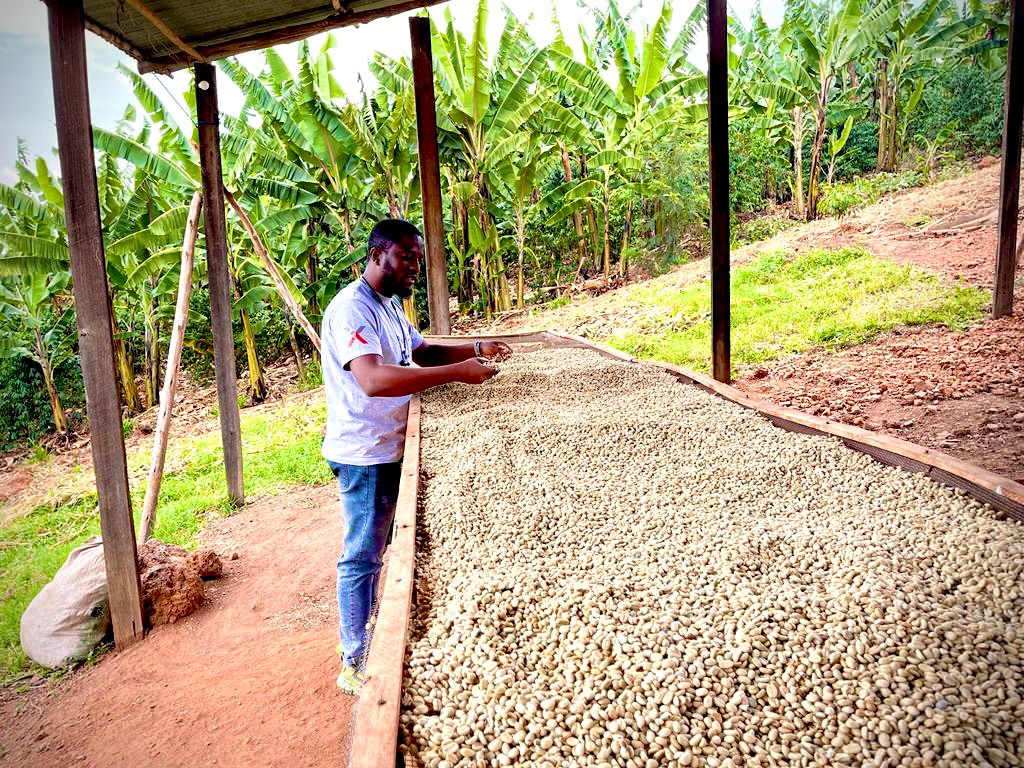Reading time:4 min read
Brewing opportunities in Uganda’s Coffee Value Chain
More than 500 billion cups of coffee are being consumed across the world annually and this market is expected to grow at an average annual rate of 5.32% between 2020 and 2024, a report by the World Economic Forum reveals. Interestingly, Uganda accounts for a large amount of coffee produced in the world, ranking eighth globally and second after Ethiopia on the list of the world’s largest coffee producers; with coffee being a major export commodity and a source of livelihood for millions of people, including smallholder farmers.
According to the Uganda Coffee Development Authority, Uganda exported 3.6 million 60kg bags of arabica and Robusta in 2015, with a turnover of $450 million in revenue. In 2021/2022, the number went even higher, as Uganda’s coffee exports increased by 23%. In Uganda, an estimated 350,000 to 375,000 MT of coffee is produced annually. The country is known for leading in the production and export of Robusta coffee as 3.3% of Uganda’s coffee exports are certified coffees.

Despite this growth, smallholder farmers in Uganda still face various challenges that limit their productivity and profitability, including limited access to information, training, finance, and quality inputs, among others. But these challenges have a promising solution; unlocking the potential of Uganda’s coffee value chain by introducing innovative strategies to improve the capabilities of key players in this sector for more exquisite blends of coffee and improved livelihoods.
A key component of ensuring sustainability and prosperity in the coffee value chain is access to finance. This is a major challenge for smallholder coffee farmers who lack the collateral and credit history to secure loans from banks and other financial institutions, making it difficult for them to invest in their farms, purchase inputs, and improve their yields. To address this challenge, stakeholders in the coffee industry, including government agencies, financial institutions, and development partners, can work together to provide affordable and accessible credit facilities to farmers for better productivity. Additionally, we must ensure smallholder coffee farmers in Uganda have timely access to quality inputs such as seedlings, fertilizer, pesticides, and other agrochemicals to increase productivity.
There is also an increasing threat from climate changes such as incessant rain patterns, and unfavorable changes in temperature that affect coffee yields and quality and increase the incidence of pests and diseases. To unlock opportunities in the coffee value chain, it’s important to address climate change and promote climate-smart agriculture practices such as agroforestry, the promotion of the use of drought-resistant varieties, and establishing monitoring systems that provide early warning systems.

Technology adoption is also critical to unleashing the potential of Uganda’s Coffee strength. By embracing modern technologies such as mechanization, irrigation, and precision farming, smallholder farmers can increase their productivity and efficiency, reduce costs, and improve their crop yields. Therefore, stakeholders can work together to provide the appropriate training and support to smallholder farmers on adopting modern technologies. It will also help to establish market information systems that provide them with real-time information on prices and demands for a more collective bargaining power in the market.
While these strategies could work for bolstering economic growth in the industry, it is crucial to ensure that women, youth, and other marginalized groups are included in the coffee value chain. This can be achieved by establishing gender-sensitive policies and programs, promoting youth entrepreneurship, and involving smallholder farmers in the decision-making process both at the grass root, state, and federal levels.
In the end, brewing opportunities in Uganda’s value chain requires a holistic approach that addresses the imminent challenges faced by every key stakeholder across the value chain. By implementing these strategies, we can create a coffee value chain that benefits everyone involved, especially farmers who form the backbone of the sector and contribute to the growth of the coffee industry in Uganda.
_Written by Abdul-Hafeez O. Odunsanya, Managing Director, AFEX Fair Trade, Uganda. _
